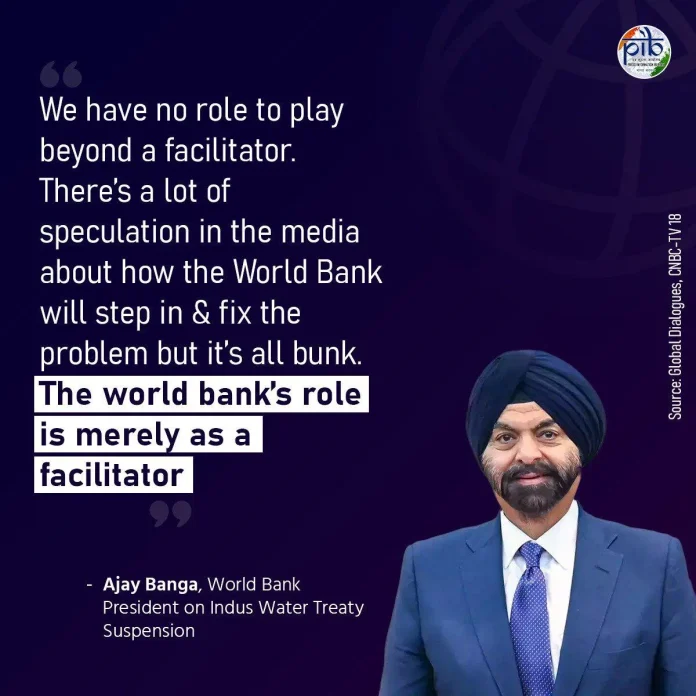NEW DELHI, May 9: The World Bank has no role beyond being the facilitator of the Indus Waters Treaty between India and Pakistan, clarified Ajay Banga, President of the international financial institution. The statement comes amid rising tensions and speculation over the treaty’s status following the recent Pahalgam terrorist attack.
Speaking on the matter, Banga emphasized that the World Bank’s position is limited and it cannot intervene in resolving the suspension imposed by India on the water-sharing agreement. “We have no role to play beyond a facilitator. There’s a lot of speculation in the media about how the World Bank will step in and fix the problem but it’s all bunk. The World Bank’s role is merely as a facilitator,” he was quoted as saying by the Press Information Bureau.
The Indus Waters Treaty, signed in 1960 with the World Bank’s assistance and involvement as a signatory, allocates the waters of the Indus River system between India and Pakistan. It grants Pakistan control over the western rivers — Indus, Jhelum, and Chenab — and India control over the eastern rivers — Ravi, Beas, and Sutlej. The treaty also permits each country limited use of the other’s rivers, with India receiving about 20 per cent of the water from the Indus system and Pakistan receiving 80 per cent.
India suspended the treaty in the aftermath of a horrific terrorist attack in Pahalgam, Jammu and Kashmir, that claimed the lives of 26 people, mostly tourists. The decision to put the treaty in abeyance was taken until Pakistan credibly and irrevocably ends its support for cross-border terrorism.
On the same issue, India’s Foreign Secretary Vikram Misri, in a press briefing on Thursday evening, stated that Pakistan had repeatedly violated the treaty by deliberately creating “legal roadblocks” over the years. He stressed that India had shown considerable patience and restraint by adhering to the treaty for 65 years despite repeated provocations.
Misri further noted that India has consistently sought dialogue with Pakistan to discuss potential modifications to the treaty, aiming to ensure its effective implementation in line with evolving circumstances.

